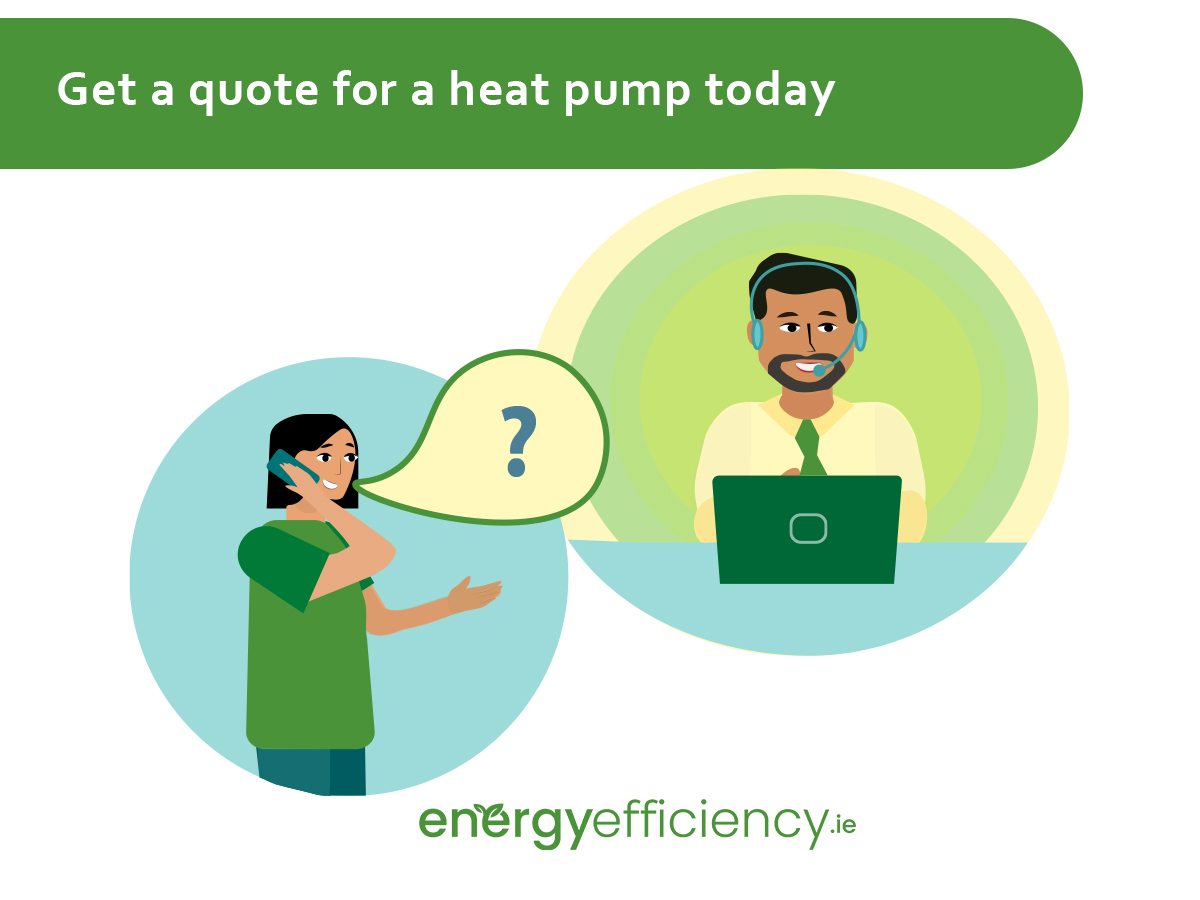One of the biggest selling points touted by heat pumps is how much more efficient they are compared to boilers and electric heaters.
Efficiency is the ratio of the power input to your heating system to how much heat it produces at the other end.
It is common to see heat pumps advertising efficiency levels of 300-400%, meaning that they will produce 3 to 4 units of heat for every unit of electricity used by the system. Some manufacturers are even now stating that their cutting-edge models can reach efficiencies of up to 500% in the right circumstances.
With that in mind, here we will break down what is meant when people talk about the efficiency of a heat pump. How it is measured, how it differs based on energy sources and the standard of your home, and how it affects you.
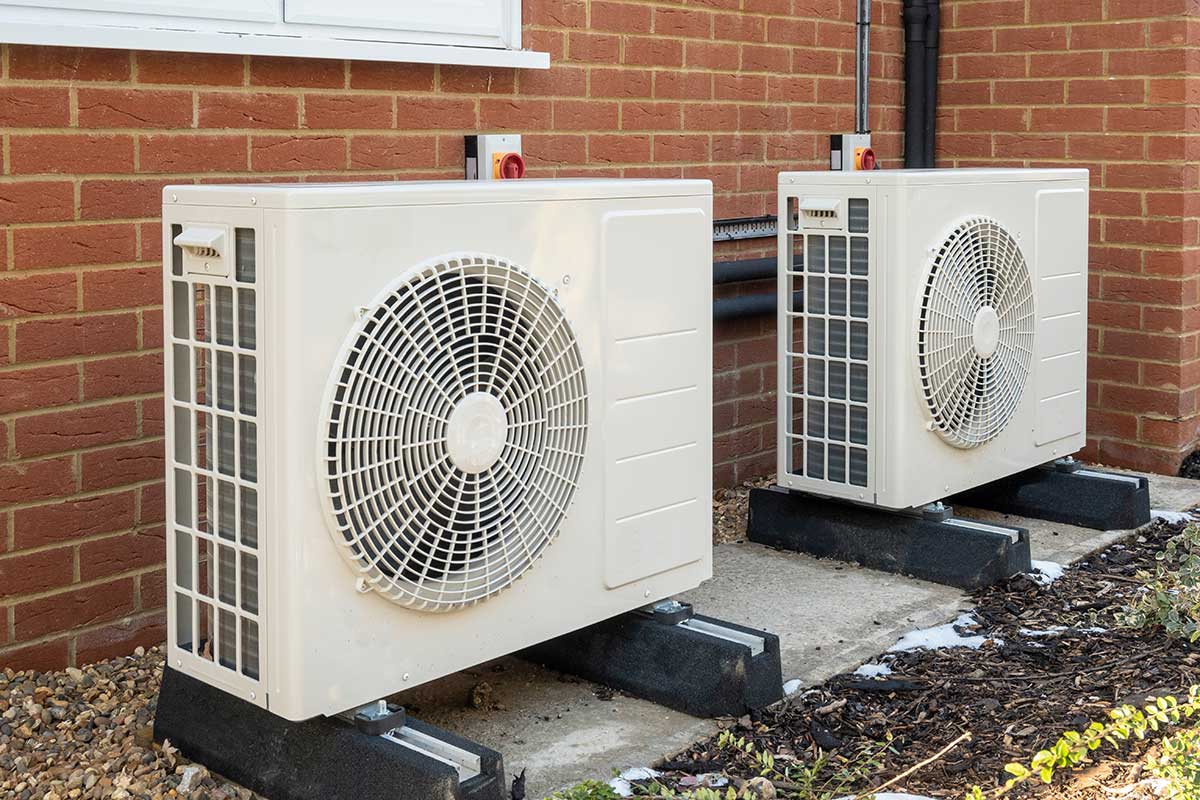
Table of Content
How is Heat Pump Efficiency Measured
There are multiple metrics used to measure the efficiency of a heat pump, which can look at its performance at the moment, averaged across different temperature ranges, and over a period of time.
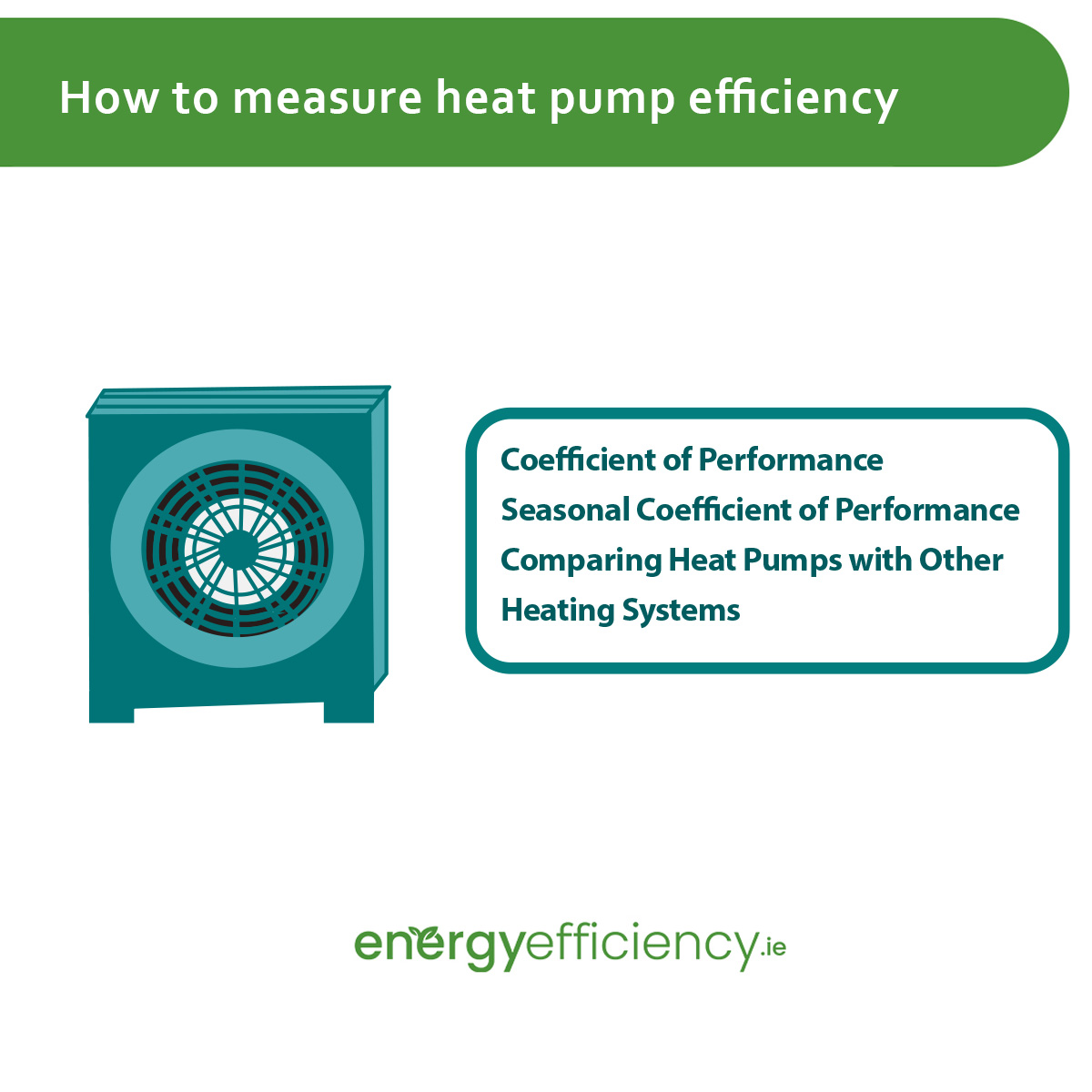
Coefficient of Performance
The Coefficient of Performance (COP) of a heat pump is the ratio of the heat energy it outputs to the energy input required for it to work.
Coefficient of Performance = Rate of Heat Delivered (kWth) / Power Input (kWe)
The COP of a heat pump essentially gives a snapshot of how it is performing at any given time.
Seasonal Coefficient of Performance
A problem with the COP as a measurement of efficiency is that it can vary greatly based on the time of year as temperature changes. Air Source heat pumps are particularly susceptible to this, with air temperature fluctuating more than ground or water sources.
For that reason many manufacturers will often also cite the Seasonal Coefficient of Performance as a metric which measures efficiency over an entire heating season.
It will combine the calculations of the COP during winter with what might be expected during summer to get a more accurate average.
The SCOP is the basis for European minimum requirements and energy labelling and is sert according to the EN 14825 standards.
Comparing Heat Pumps with Other Heating Systems
Taking a step back from the simple efficiency figures, the question then becomes how that efficiency relates to the annual running cost of a heat pump compared with other home heating systems.
Consider a home with an annual heating requirement of 12,000kWh, and how much energy is used by different heating systems.
| Heating Type | Efficiency | Energy Required | Fuel Required | Annual Cost |
| Heat Pump | 350% | 3,429kWh | €933 | |
| Condensing Gas Boiler | 98% | 12,245kWh | €1,368 | |
| Condensing Oil Boiler | 94.5% | 12,698kWh | 1,209l | €1,269 |
| Electric Heaters | 100% | 12,000kWh | €3,268 |
Cost based on Electric Ireland 24-hour Rate of 27.23c per kWh, Bord Gais Stardard Rate 11.17c per kWh (excl. standing charge), Oil Price €1.05 per litre.
What Alters the Efficiency of a Heat Pump Installation
Obviously the first thing that comes to mind when looking at the efficiency of your heat pump is what model of machine you buy. More expensive system will typically come with higher efficiencies than lower end models.
However, the levels of efficiency listed in a heat pump’s technical specifications are not necessarily what you are going to get. Manufacturers’ testing conditions can vary from real world conditions, and every home is unique.
There are a number of factors related specifically to your property which can improve or worsen the efficiency of your heat pump.
| Getting the Most out of your Heat Pump | |
| Properly Insulate Your Home | ✔ |
| Correctly Sized Heat Pump | ✔ |
| Right Heat Pump Energy Source | ✔ |
| Low Flow Temperature | ✔ |
| Low Temperature Radiators/Underfloor Heating | ✔ |
| Optimise Climate Controls | ✔ |
Insulate Your Home
As heat pumps typically operate at a lower temperature than boilers, and rely on a steady flow of lower grade heat rather than bursts of high heat, they are more susceptible to heat loss through the fabric of the building.
Correctly Size the System
It is important to ensure that your heat pump is correctly sized for your home, and is not under or overpowered.
An undersized heat pump won’t do as good a job heating your home in the winter, and will struggle longer to cool a home during the summer, costing you electricity.
A more common problem is for the heat pump to be oversized, which can seriously affect efficiency. Heat pumps are at their most efficient maintaining a set temperature over a longer period of time.
An oversized heat pump will turn on and off constantly as it heats the space too rapidly, both lowering its efficiency and wearing it out more quickly.
Proper Heat Pump Energy Source
Choosing between air, water, and ground source heat pumps is important. Air Source Heat Pumps are more affected by swings in temperature than ground or water source systems, making them less efficient during cold weather.
Low Flow Temperature
Heat Pumps operate at a lower temperature than boilers, delivering a constant stream of lower 35 – 50℃ heat rather than bursts of 60 – 80℃ as you would with boilers.
The lower the flow temperature, which is how hot the water is being supplied to the water system, the more efficient the heat pump will become. Manufacturers’ specifications show heat pumps at their most efficient at 35℃.
Low Temperature Radiators/Underfloor Heating
Achieving that low flow temperature can require a home heating system which is designed to work with heat pumps. Low temperature radiators and underfloor heating both come with a much larger surface area to deliver heat from, allowing them to adequately heat a room with water that is not as hot.
Optimise Heating Controls
Use programmable thermostat controls to ensure that your heat pump is working continually at its optimum temperature in order to maximise efficiency.
How Efficiency Affects Costs
There can be a high upfront cost to maximising the efficiency of your heat pump. This comes from both buying higher end models, and any upgrades required to the fabric of your home and heating systems.
However, this will deliver savings over time in the form of reduced heating and cooling costs, along with the benefits of a more comfortable home.
Of course, these prices are only estimates and the real costs will vary depending on your home energy needs and the design of the heat pump system.
SCOP Efficiency vs. Annual Running Cost
Assumes a home with a requirement for 12,00kWh of heat annually, and using Electric Ireland 24hr Rate of 27.23c per kWh.
Air, Water, and Ground Source Heat Pumps
Heat pumps will have different levels of efficiency based on the source of their energy in the environment. Ground and Water source heat pumps in particular typically have higher advertised SCOPs, as they are less affected by the cold weather during winter.
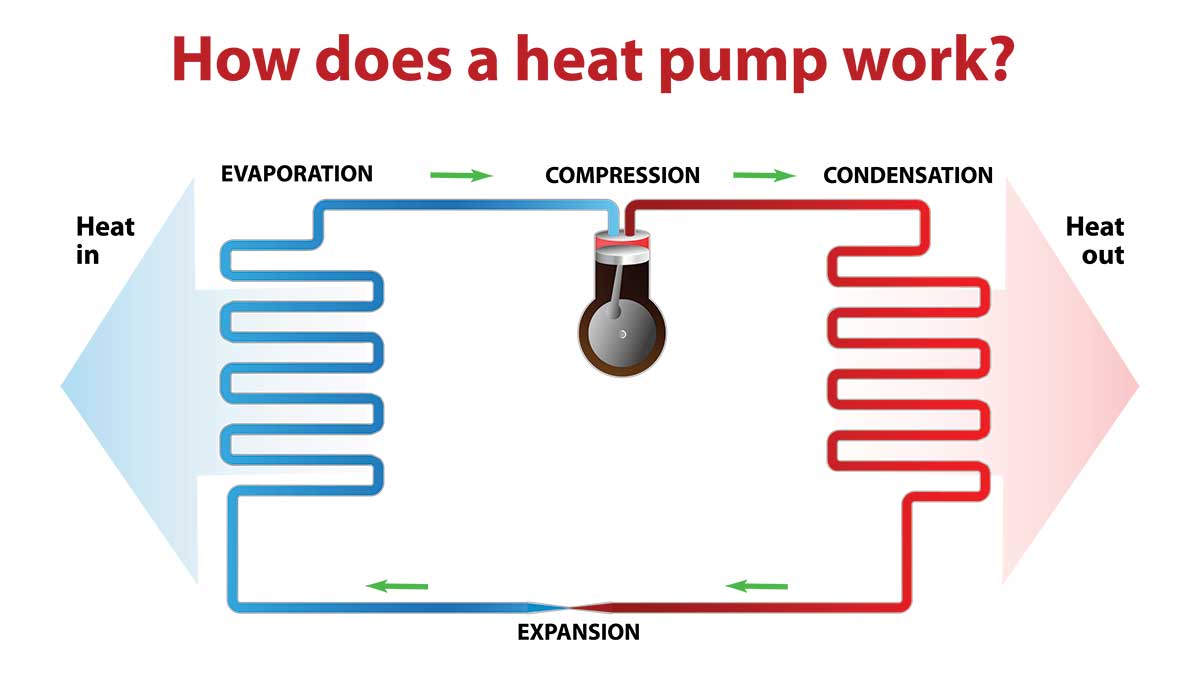
Heat Pump Efficiency
Disadvantages of Ground & Water Source
While ground and water source heat pumps are less affected by colder weather, the system design can also reduce their efficiency.
In air source heat pumps the only notable power input is with the compressor. However, depending on the design pumping the refrigerant in a ground or water source system from deep underground could potentially exceed what you save from the higher temperatures.
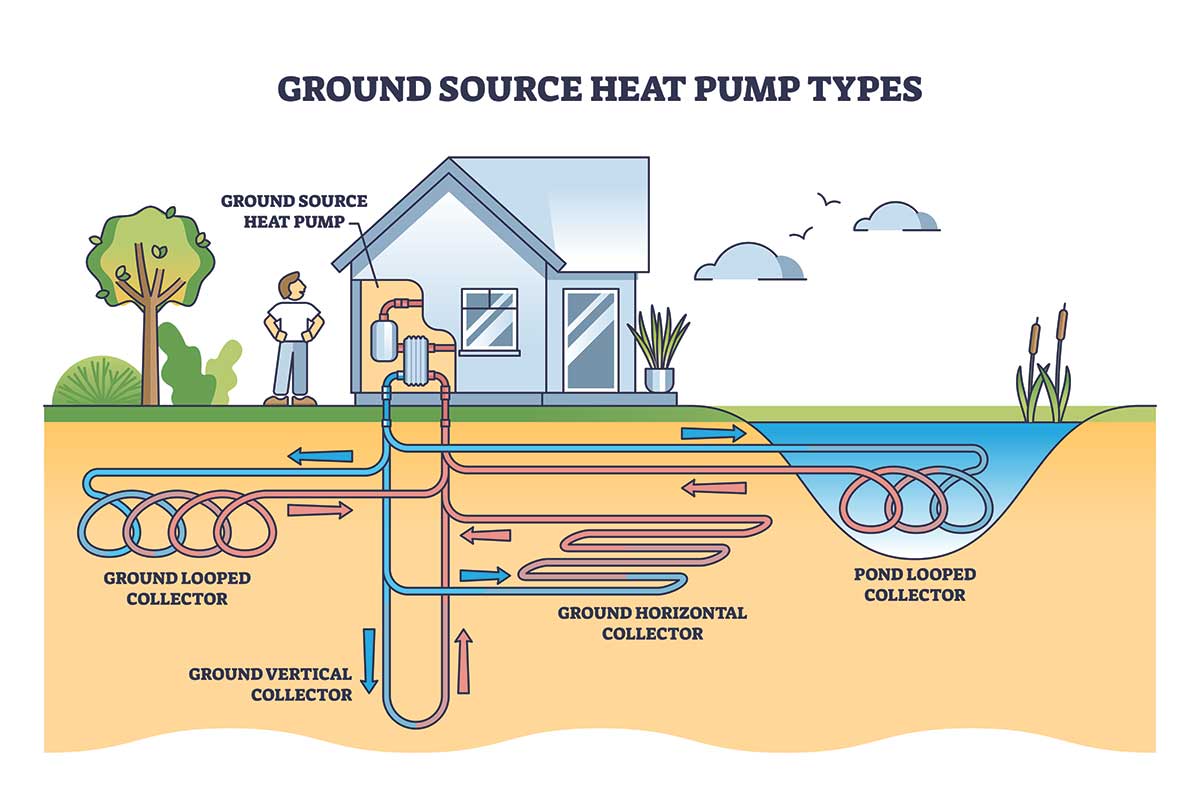
Efficiency Requirements for Heat Pumps Grants
There are many different sources of grants for heat pumps. But for homeowners, the Sustainable Energy Authority of Ireland is the primary source.
They offer grants of up to €6,500 for homeowners to upgrade their home heating and domestic hot water systems to renewable energy. However this comes with certain requirements for your home, and for the design of the heat pump system itself.
For homes built prior to 2007, a Technical Assessment must first be completed to determine if the fabric of your building has a low enough level of heat loss for a heat pump to be worthwhile.
This Technical Assessment will be carried out using the DEAP (Dwelling Energy Assessment Procedure) methodology. Among other things this measures the home’s energy performance in (kWh/m2/year) for space and water heating.
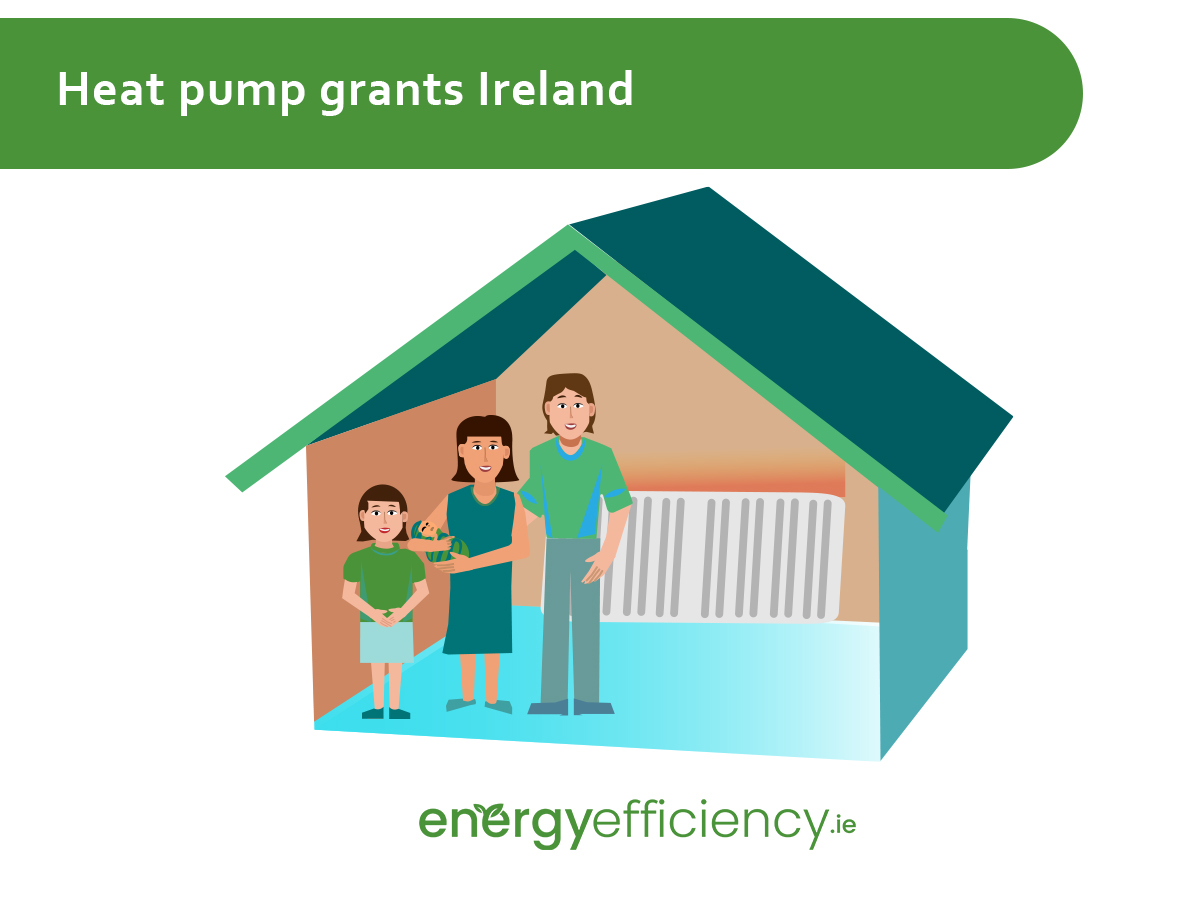
Homes seeking a heat pump grant must meet a minimum standard of the total heat loss of the dwelling, including the building fabric (walls, roof, floor) and ventilation.
Typically homes must achieve a Heat Loss Indicator (HLI) of 2 or less in order to be eligible for the grant.
𝐻𝐿𝐼 = 𝐹𝑎𝑏𝑟𝑖𝑐 𝐻𝑒𝑎𝑡 𝐿𝑜𝑠𝑠 + 𝑉𝑒𝑛𝑡𝑖𝑙𝑎𝑡𝑖𝑜𝑛 𝐻𝑒𝑎𝑡 𝐿𝑜𝑠𝑠 / 𝐹𝑙𝑜𝑜𝑟 𝑎𝑟𝑒𝑎 𝑜𝑓 𝑑𝑤𝑒𝑙𝑙𝑖𝑛𝑔 [ 𝑊 / 𝐾 ∙ 𝑚2 ]
The Heat Pump system design itself must also meet minimum thresholds of efficiency for both space and water heating.
| Heat Pump Type | Space Heating Efficiency | Domestic Water Heating Efficiency |
| Air to Water | 300% | 160% |
| Air to Air | 300% | N/A |
| Exhaust Air to Water | 300% | 160% |
| Ground to Water | 300% | 160% |
| Water to Water | 300% | 160% |
Do Heat Pumps Lose Efficiency
A heat pump can lose efficiency over time if it is not properly maintained, therefore it is important to have it serviced roughly once a year to ensure that components are not becoming overly worn out.
Moving parts such as the compressor are the most likely to wear out, and may need to be replaced. Studies have shown that the SCOP of a heat pump can fall as much as 25% based on issues with the condenser alone.
Modern heat pumps could potentially last 15 – 20 years, though the technology is still young and this has not been fully tested.
Does Efficiency Affect the Carbon Footprint
The more efficient a heat pump, the less electricity is required to operate it, reducing the carbon footprint of what is already a low impact renewable energy heating system.
FAQs
Do I need planning permission for heat pumps?
Whether your heat pump requires planning permission will depend on the system design. Air source heat pumps typically do not require planning. Ground and Water source heat pumps may however, depending on how much the ground will be altered.
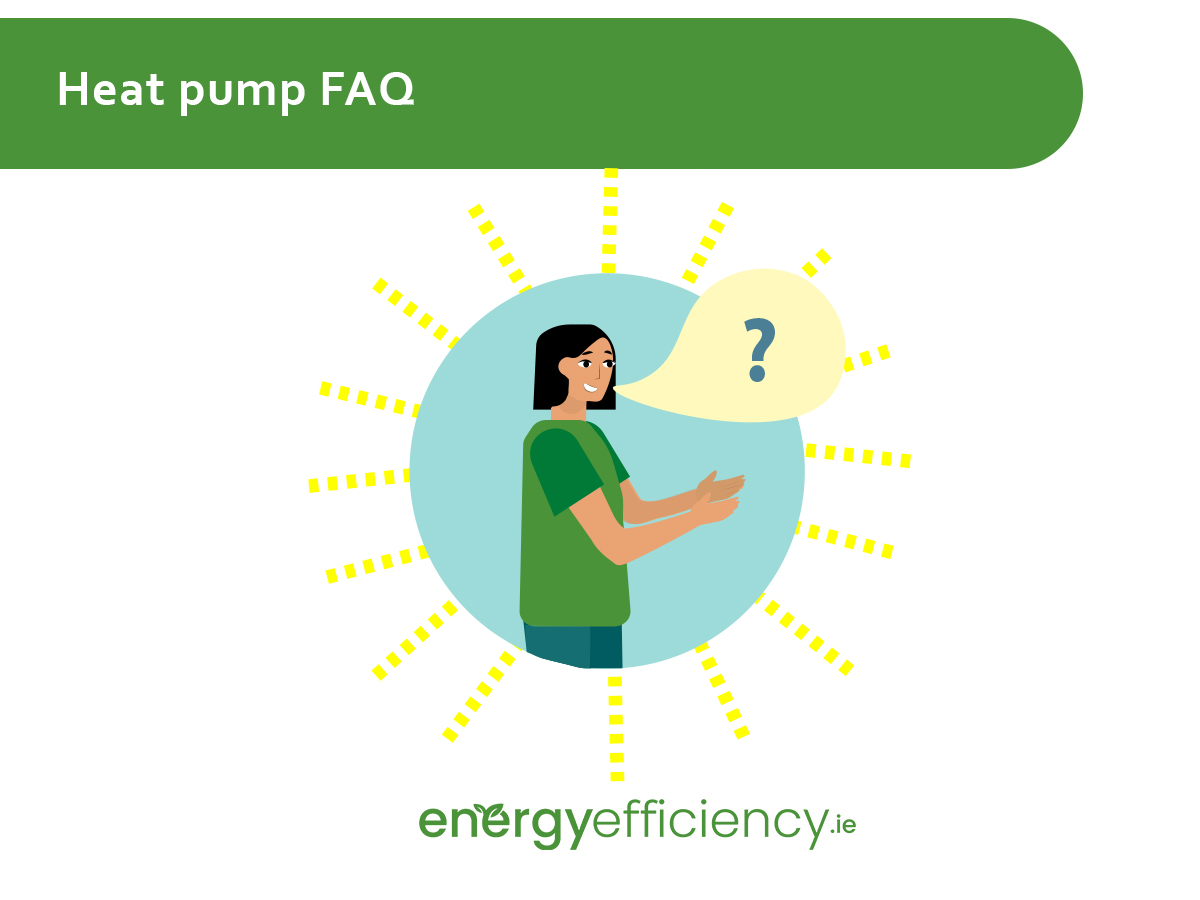
Get In Touch
Get in Touch for a FREE Quote on how much a heat pump for your home may cost, and how much it can save you with renewable energy.
Speak with Energy Efficiency, Ireland’s leading source of information on your home’s heating and electricity.
